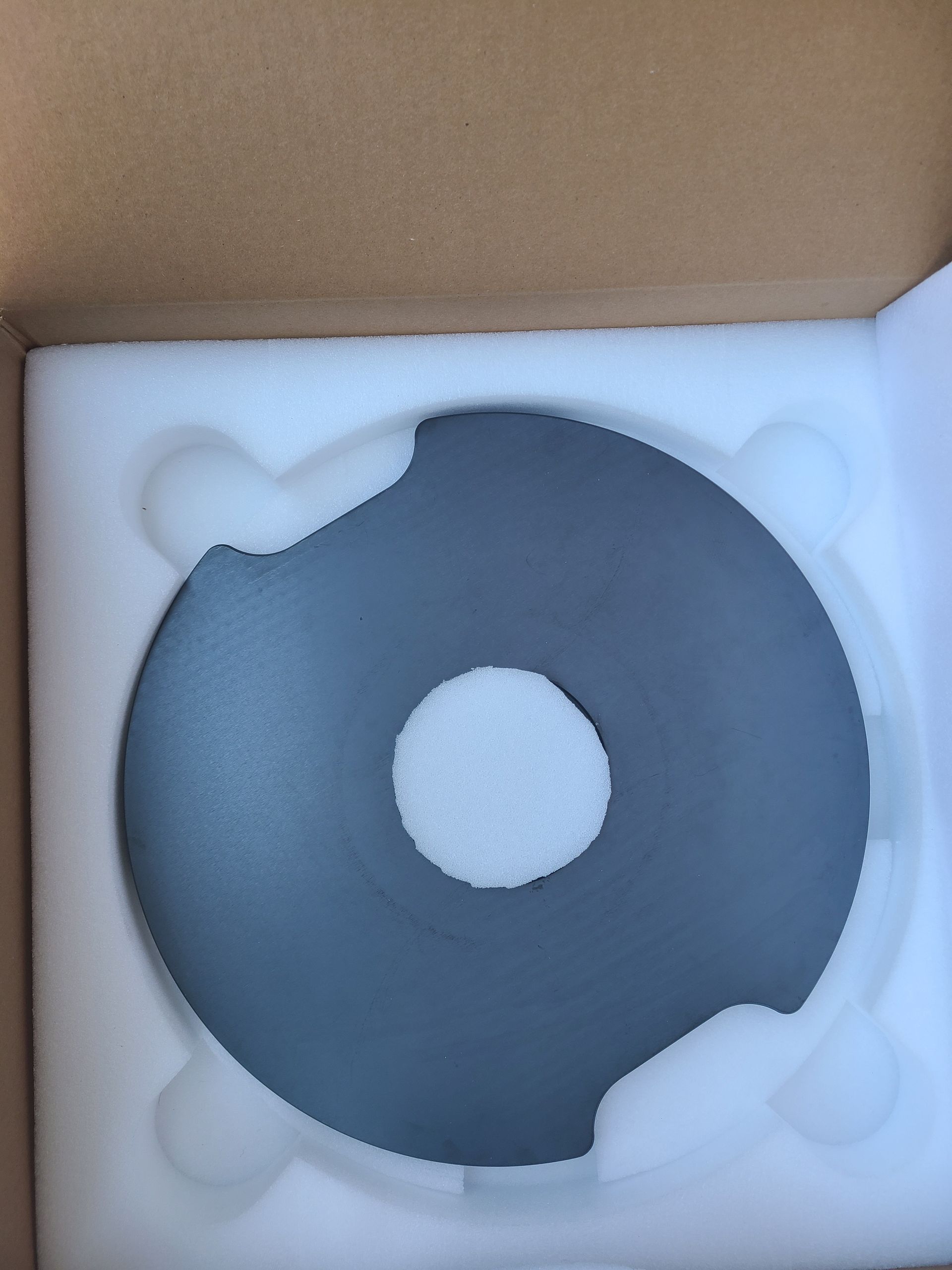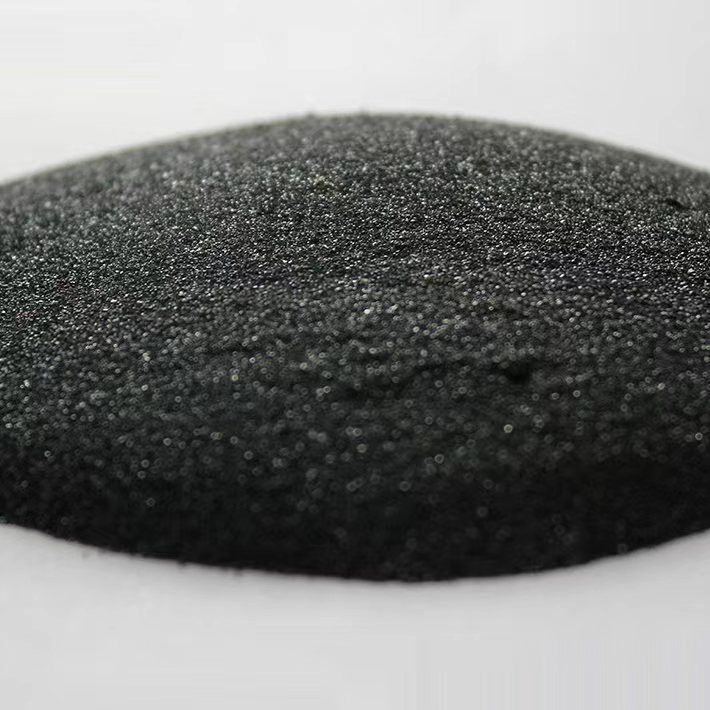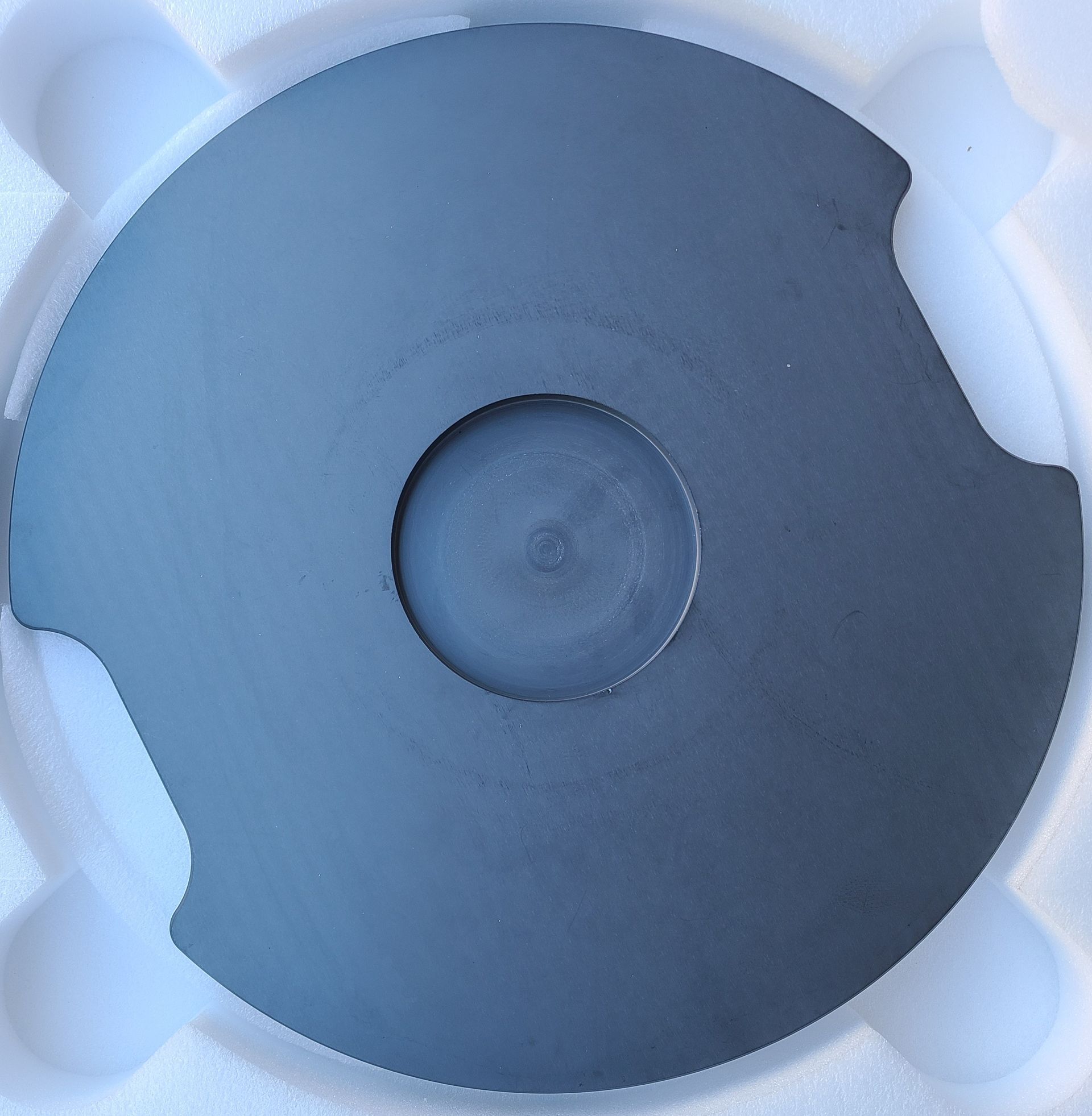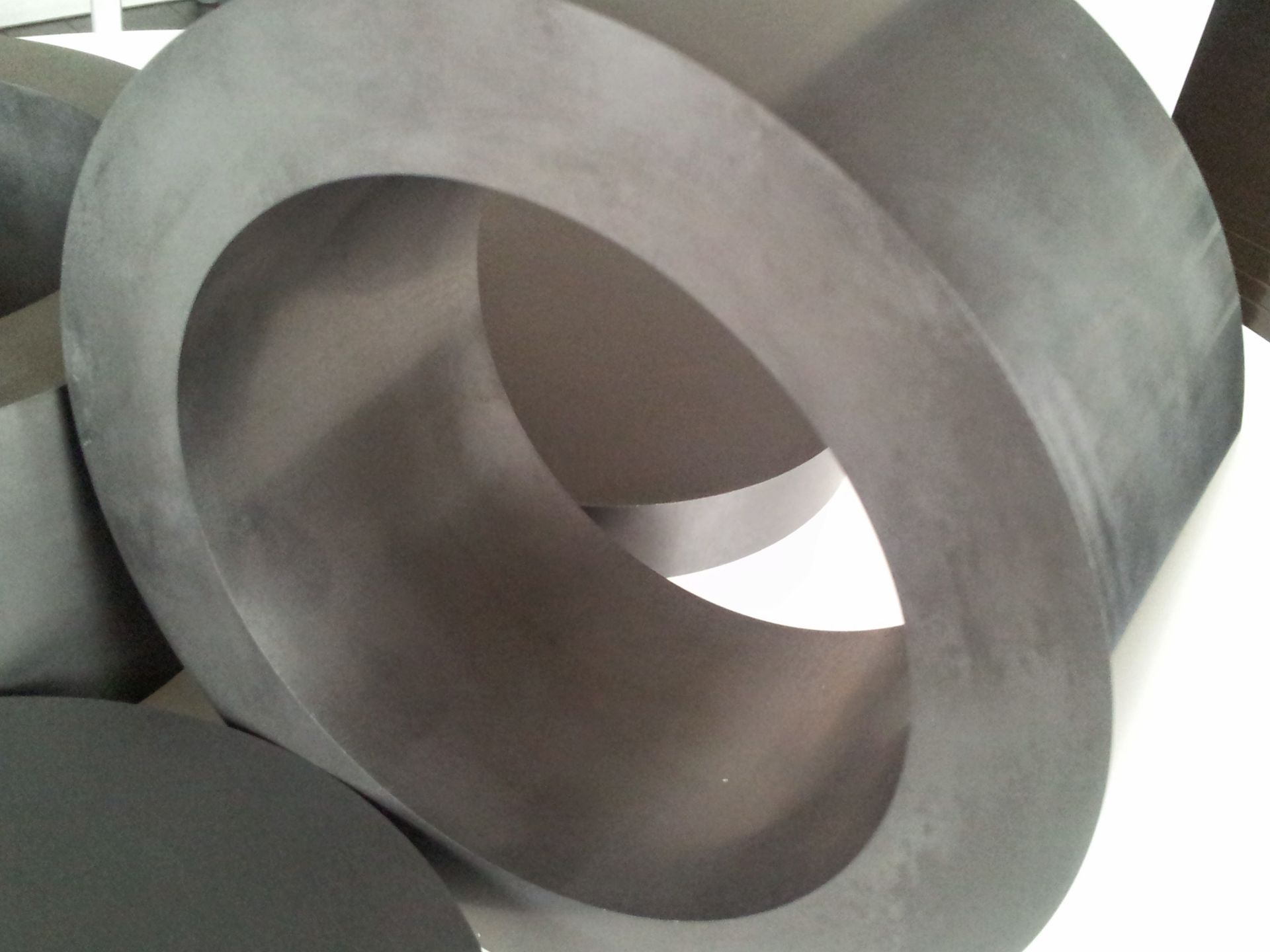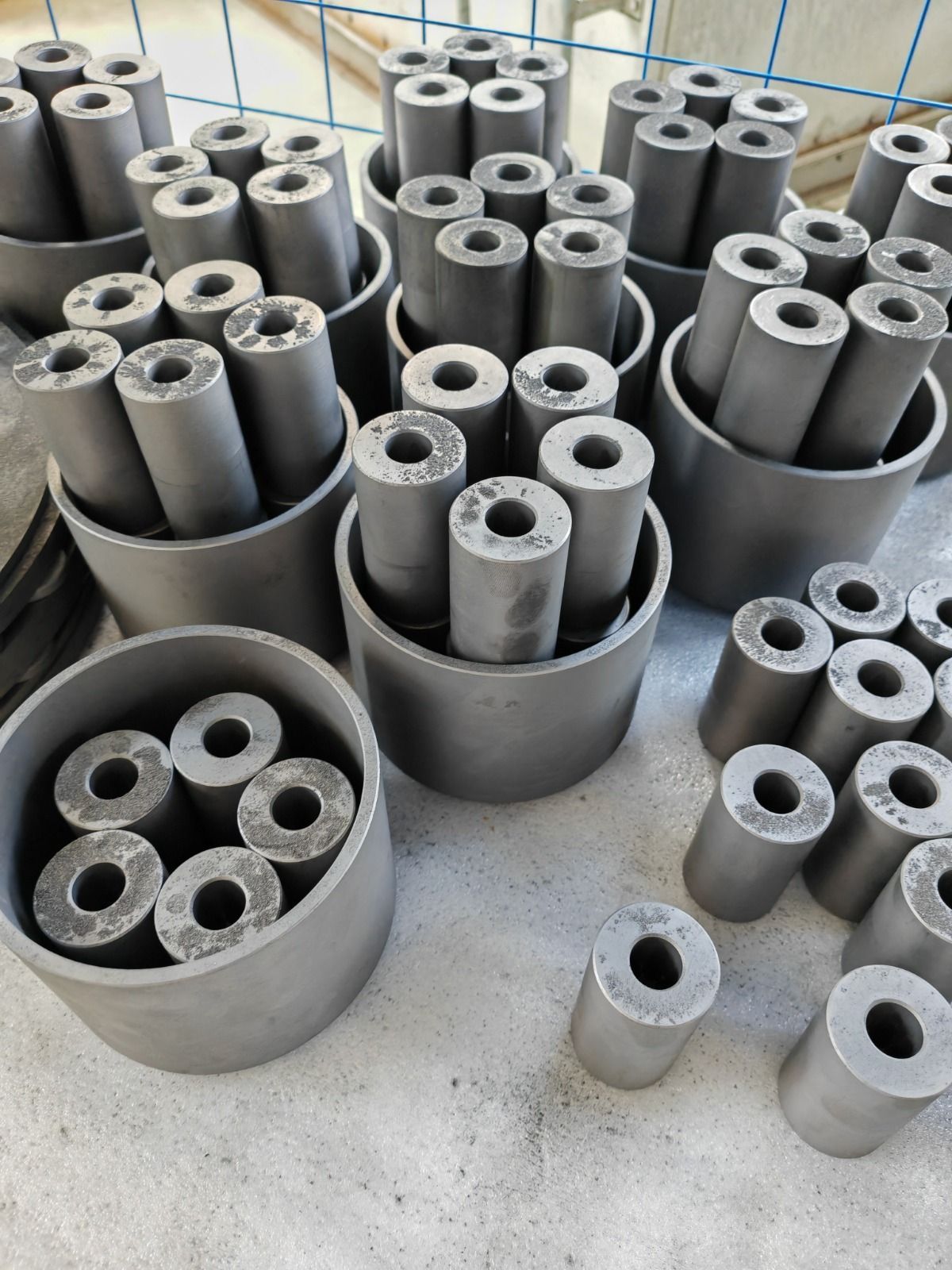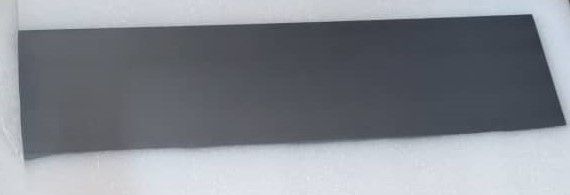Boron Carbide
Boron carbide, known as B4C, stands as one of the most formidable materials globally, coming in at third place just after diamond and cubic boron nitride. It holds the title of being the toughest material fabricated in large quantities.
Initially stumbled upon as a byproduct during the production of metal borides in the 19th century, boron carbide is synthesized by subjecting carbon to B2O3 in an electric arc furnace, utilizing carbo-thermal reduction or gas phase reactions.
Before being used in commercial applications, boron carbide undergoes milling and purification to rid it of any metal impurities. With a density of 2.52, hardness ranging from 2,900 to 3,580, and a melting point of 2445°C, it possesses a toughness level between 2.9 and 3.7, an electrical conductivity of 140, and a thermal conductivity ranging from 30 to 42. Additionally, it features a thermal expansion rate of 5, thermal neutron cross-section of 600, and a Young’s Modulus in the range of 450 to 470.
- Erosion Resistance
- High Hardness
- High Modulus
- Lightweight
- Neutron Absorber
- And More
Applications
Abrasives
Due to its high hardness, Boron Carbide Powder is used as an abrasive in polishing and lapping applications also as a loose abrasive in cutting applications such as water jet cutting. It can also be used for dressing diamond tools.
Nozzles
The extreme hardness of Boron Carbide (B4C) gives it excellent wear and abrasion resistance and as a consequence it finds application as nozzles for slurry pumping, grit blasting and in water jet cutters.
Nuclear Applications
Its ability to absorb neutrons without forming lived radio-nuclides make the material attractive as an absorbent for neutron radiation arising in nuclear power plants. Because of its B10 isotope Boron Carbide applications include shielding and control rod and shut down pellets
Combustion in Solid Fuel Ramjets
The effect of bypass air momentum on the combustion efficiency of a Boron Carbide fueled solid fuel ramjet has been investigated theoretically. A 3D model of the flow in the aft-burner has been developed and solve numerically. The theoretical results indicate that combustion efficiency can be increased by employing bypass air with low dump momentum, in agreement with experimental results. High bypass air dump momentum was shown to enhance extinguishing of particle combustion through increased collisions with the motor walls.
Ballistic Armour
Boron Carbide (B4C) in conjuction with other materials also find use as ballistic armour for personal and military use, the combination of high harness, elastic modulus and low density give the material an exceptionally high specific stopping power to protect high velocity projectiles.
Other Applications'
Boron Carbide evaporation boats for material testing mortars and pestles, ceramic tooling dies, precision toll part
Boron Carbide Dressing Sticks
We make dressing sticks fully dense and larger for a longer life. Ideal for off-hand truing and dressing of medium grit, soft and medium-grade vitrified grinding wheels, our sticks are 4” x ½” x ¼” thicker and longer, making them easier to use and more cost-efficient.
All Rights Reserved | Technical Materials Solutions LLC

